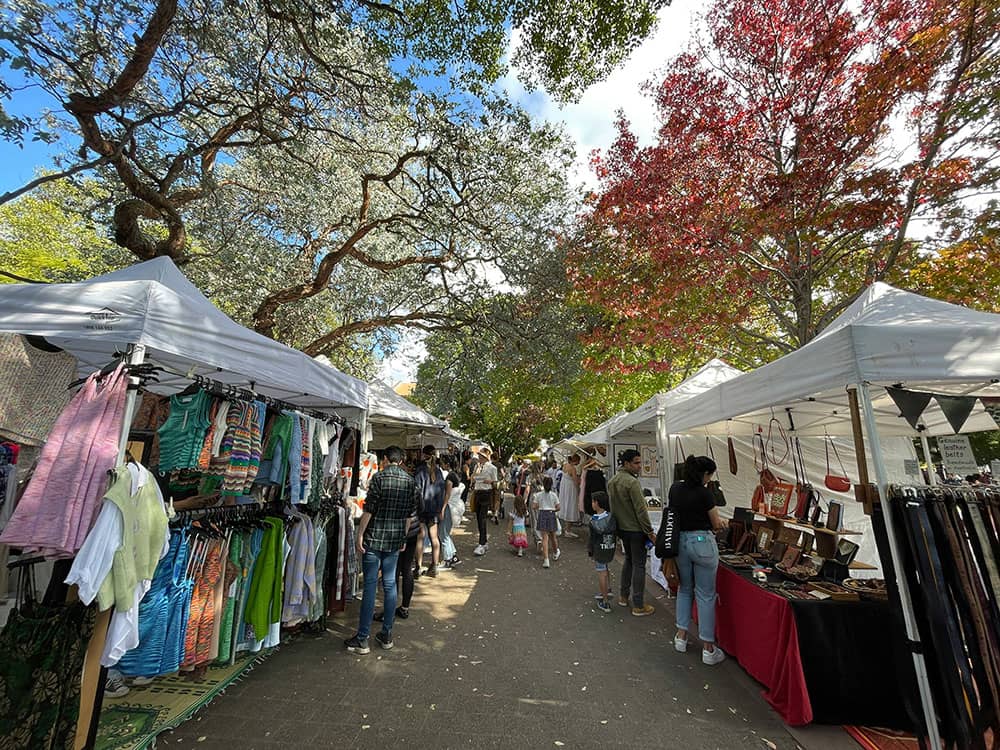MARKET STALL INSURANCE – WHAT YOU NEED TO KNOW
Do I Need Insurance to Run a Market Stall?
Top Four Reasons You Need Insurance to Cover Your Market Stall
- Potential for Being Held Responsible for Causing Damage
Even though you are careful when you set up your stall, things can go wrong seemingly out of the blue. For example:
- A strong gust of wind blows your umbrella into a nearby stall, damaging their products. You did not directly cause the accident, but you may be held liable for the damages.
- Someone passing by your stall trips over an unsecured cable and breaks their arm. You could be held responsible for medical bills and other damages this time.
- A customer bumping into a stone statue and breaking their toe seems like a situation where you would not be liable. However, you can never tell what judgment may be given.
- Being Held Responsible for Your Product Causing Harm
You put all of your care and effort into making your product the best it can be. However, the most minor mistake can cost you thousands. The Australian Consumer Law offers protection for consumers. If they experience loss or damage because of safety defects in the goods they purchase, consumers can seek compensation from manufacturers, distributors, suppliers and retailers. *For Example*
- Your scones are marked as being free of nuts, but a package is mislabeled. A customer with a nut allergy becomes ill after eating one. Even though this was an honest mistake, your customer is within their rights to sue you for damages.
- A customer gets food poisoning because your refrigerator is not keeping food properly cold. Again, the incident was not premeditated, but the customer can take action against you. - Protecting Your Products
If you sell at markets consistently, you may want to consider cover for your products while you transport them to and from the market. Accidents while goods are in transit can take a considerable chunk of your profits. *For Example*
- You sell elaborately decorated wind chimes, and on your way to market, you must stop suddenly to avoid an accident. Many sets of windchimes are broken because of the fast stop. Your policy will protect you from a loss in this situation.
- You are loading apples into your truck to take to the market when the container breaks, sending apples falling onto the concrete. You stand to lose a profit unless you have the right cover. - Market Requirements
Numerous markets require vendors to show proof of insurance cover for their market stalls. This is because the likelihood of being sued for negligence (perceived or otherwise) increases as the marketplace becomes busier. While some markets have group policies, you are better off if you arrange your own market stall policy that will follow you wherever you go.
What is Market Stall Insurance, and What Does it Cover?
- Potential for Being Held Responsible for Causing Damage
Even though you are careful when you set up your stall, things can go wrong seemingly out of the blue. For example:
- A strong gust of wind blows your umbrella into a nearby stall, damaging their products. You did not directly cause the accident, but you may be held liable for the damages.
- Someone passing by your stall trips over an unsecured cable and breaks their arm. You could be held responsible for medical bills and other damages this time.
- A customer bumping into a stone statue and breaking their toe seems like a situation where you would not be liable. However, you can never tell what judgment may be given.
- Being Held Responsible for Your Product Causing Harm
You put all of your care and effort into making your product the best it can be. However, the most minor mistake can cost you thousands. The Australian Consumer Law offers protection for consumers. If they experience loss or damage because of safety defects in the goods they purchase, consumers can seek compensation from manufacturers, distributors, suppliers and retailers. *For Example*
- Your scones are marked as being free of nuts, but a package is mislabeled. A customer with a nut allergy becomes ill after eating one. Even though this was an honest mistake, your customer is within their rights to sue you for damages.
- A customer gets food poisoning because your refrigerator is not keeping food properly cold. Again, the incident was not premeditated, but the customer can take action against you. - Protecting Your Products
If you sell at markets consistently, you may want to consider cover for your products while you transport them to and from the market. Accidents while goods are in transit can take a considerable chunk of your profits. *For Example*
- You sell elaborately decorated wind chimes, and on your way to market, you must stop suddenly to avoid an accident. Many sets of windchimes are broken because of the fast stop. Your policy will protect you from a loss in this situation.
- You are loading apples into your truck to take to the market when the container breaks, sending apples falling onto the concrete. You stand to lose a profit unless you have the right cover. - Market Requirements
Numerous markets require vendors to show proof of insurance cover for their market stalls. This is because the likelihood of being sued for negligence (perceived or otherwise) increases as the marketplace becomes busier. While some markets have group policies, you are better off if you arrange your own market stall policy that will follow you wherever you go.
What is Market Stall Insurance, and What Does it Cover?
Grace Insurance
What Types of Business Insurance Do I Need for a Market Stall?
What is Public Liability Insurance?

What is Product Liability Insurance?
Grace Insurance
All information above has been provided by the author.
Grace Insurance, ABN 63 133 156 742, AFSL 233750
This article originally appeared on Grace Insurance Blog and has been published here with permission.





